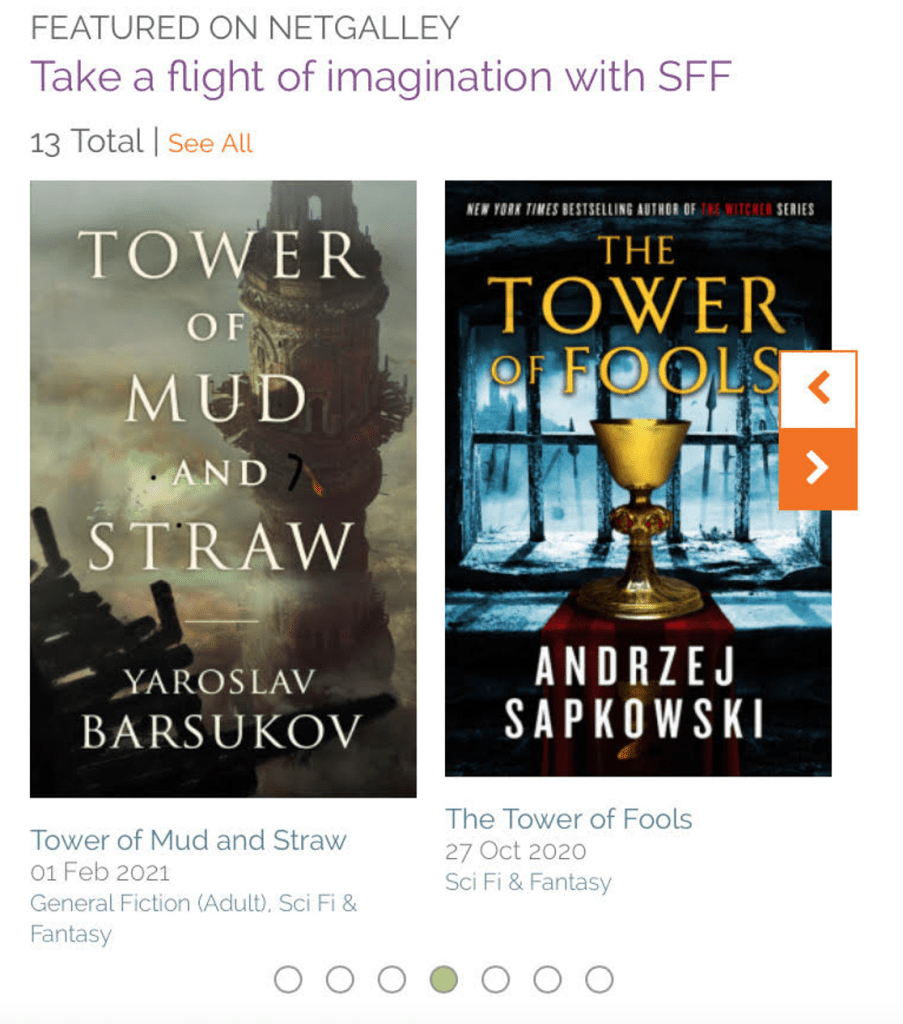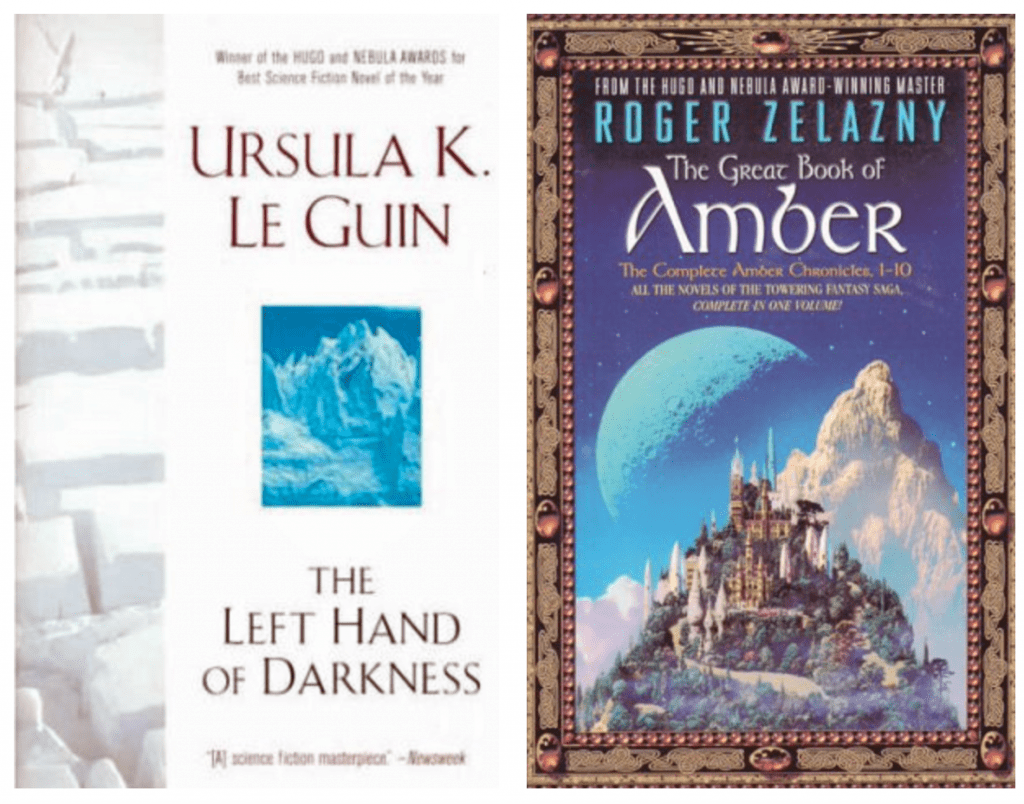
About the Author
After leaving his ball and chain at the workplace, Yaroslav Barsukov goes on to write stories that deal with things he himself, thankfully, doesn’t have to deal with. He’s a software engineer and a connoisseur of strong alcoholic beverages—but also, surprisingly, a member of SFWA and Codex (how did that happen?). At some point in his life, he’s left one former empire only to settle in another.
Links
Facebook
Instagram
Goodreads
Twitter
Website
Amazon
Describe yourself in six words or fewer.
A machine for dreams and regrets!

Tell me about your book.
Tower of Mud and Straw has got some unique worldbuilding and characters—the novella is very eclectic in terms of culture and time periods, blending standard medieval elements with industrialization and late 19th century, and incorporating Russian and Austro-Hungarian influences. Also, when you drop a thousand foot-tall anti-airship tower into the middle of a fantasy book, all bets are off as to what will happen. Miltos Yerolemou (Syrio Forel in Game of Thrones), who’d recorded the audio version, said the novella would “surprise the readers”—I happen to totally agree.
What else? Three out of five principal characters are women, one of them the tower’s chief engineer. There’s a political émigré in the mix. Give it a try, it’s really something different.
What makes you and your books unique? Shine for me, you diamond.
Lots of introspection, lots of internal monologue, and a hard focus on human relationships—human condition fascinates me. I hope my prose accomplishes what science fiction and fantasy are there for, what Bradbury was so good at—taking real-world issues and putting them under the speculative element’s magnifying glass.
What are you working on now/any future projects you want to talk about?
I’ve got an outline for Tower’s sequel sitting on my lap, but we’ll have to see how this first one performs (sales-wise).
In parallel, I’m outlining a novel for which I’ve figured out the plot and the character arcs, but not the setting: it will either be Ancient Mesopotamia or early Imperial Russia. Quite a gymnastic split, isn’t it?
Let’s celebrate. What’s one of the best things that’s happened to you as an author? Don’t be shy.
When you accepted my book for review 🙂 (Sarah’s note: Aww!) Apart from that, in no particular order:
- The review of Tower of Mud and Straw from Fantasy Book Critic—that one made me finally feel like, you know, a real author, as opposed to just a published one.
- My first story sale to The Sockdolager (now defunct) five years ago.
- Being “featured” on NetGalley side-by-side with Andrzej Sapkowski… Two Towers, anyone?

Let’s talk about CRAFT
What does your writing space look like?


Sarah’s note: Holy crap, I wish my writing space was this tidy.
Plotter or pantser, and why?
Definitely a plotter! The ending, a real gut-punching ending, needs to be set up—ideally, from the first scene. In Tower of Mud and Straw, there’s this dog in the beginning that tries to get at a lamp post stretched between two buildings—and then, in the end, the narrative loops back to it. Seeds need to be planted, plants need to be watered.
Characters pose another challenge. I imagine I’m a pantser, and I’ve just started a huge epic. With a one page-thick outline. I introduce a royal family, a stable boy and his horse, a host of servants (insert here social commentary of your choice), royal rivals. For the first 200 or so pages, it’s fine, then I discover the stable boy has nothing more to do in the story. I have to kill him off, right? The problem is, in that case it would also make sense to decimate half of the royal family and their servants—but too much death is too much, and I leave some of them be, let them linger in the background. In a “throw it at the wall and see what sticks” manner, I bring in the stable boy’s uncle, aunt, and two nephews thrice removed in the hope of making something interesting out of them; the uncle becomes a fan favorite, but the aunt and the nephews don’t. Again, I can’t simply murder all the newcomers.
And thus the number of boring arcs grows.
Do you listen to music when you write? What kind?
I actually use music as a means of finding my way from the day-job world into the world of the story. At the outline stage, I build a playlist, and as I map out the narrative, the harmonies turn into associations. A trumpet croons—I’m at the castle gates; a few distorted guitar chords—that’s the antagonist talking; a throaty cello is a dress and a face and torches in the courtyard.
Then, from the moment I hit the sweet spot between the music and the prose—if I’m lucky enough to get there—it’s riding a Shinkansen bullet train.

I would use anything from Classical/Baroque all the way to art rock, contemporary jazz, and soundtracks. It has to a) reflect what the characters are feeling and b) be subdued enough so as not to become distracting. The latter point also implies: no vocals.
Here’s a portion of Tower’s “playlist”:
- Max Richter, “Path 5” (Mogwai’s remix)
- Miles Davis, “Time After Time” (yes, a cover of Cyndi Lauper’s song)
- David Cross and Robert Fripp, “Starless Theme”
- Vivaldi, RV 638 (“Sileant Zephyri,” the organ-only version)
- Craig Armstrong, “The Quiet American” (piano version)
What does your research process look like?
I’m lazy! This is why I write SF/F, because I hate research 🙂 Kidding, but only partially. I try to get the technical aspects right—physics, astronomy, biology. For cultures, I would gulp down a book or two, but mostly I would work with the elements I already know, trying to give them this or that flavor.
Let’s talk about sensitivity readers. Have you ever used them? How do you go about doing it? When and why?
One should always use them if one feels there’s a slightest need for them—people’s feelings and mental state are far more important than prose. I used two bisexual readers for a novella about a mother and a child in a city slowly dying of a magical plague. Had to scrap that book, unfortunately, but I hope to return to it someday.
Let’s talk about BOOKS
Tell me about the most recent book you’ve read.
I’ve been slowly making my way through NESFA’s six-volume The Collected Stories of Roger Zelazny. Savoring prose is like rolling good wine over your tongue, it’s a process that requires time.
There’s a funny story about the books. Although the title says “collected stories,” in reality, it’s not only the stories—there are Zelazny’s poems, too.
See, RZ had started out as a poet, but then abandoned that path in favor of spec lit because he felt one couldn’t earn a proper living otherwise. He missed poetry, though. If you read “A Rose for Ecclesiastes,” it oozes from all its pores with unrealized ambition.
George R.R. Martin penned a beautiful eulogy for Zelazny—RZ lived in Santa Fe, and so does Martin; I think they became friends when Zelazny had loaned him money in time of need. In the piece—which is much more about RZ than about GRRM himself, a rare occurrence for eulogies written by professional writers—Martin notes how, at the end of his life, Zelazny played tabletop RPGs. And being the amazing creative mind he was, he invented a host of unique characters for those games. One of those characters, according to Martin, was a “Chinese poet warrior, declaiming thunderingly bad poems as he walked down an endless muddy road.”
Martin assumed, of course, that the poems were bad by design. Having been reading the NESFA collection, I’m not so sure anymore 😉
Let’s say I’m forever grateful for the fact we’ve gotten Zelazny the prosaic and not Zelazny the poet!
But oh my, how lyrical, how sharp, how exquisite his prose could get…
Tell me about an underappreciated book, and why everyone should read it.

Peter Watts’s Echopraxia! A beautiful, bleak novel. Many consider it inferior to his seminal Blindsight, but I reread it every half a year, and I keep it handy as a reference of what can be done with the English language.
There are scenes in it which still intimidate me as a writer. For example, normally, you never lead with action, instead giving the reader time to get to know the characters. Echopraxia opens with a huge action piece, Watts keeps doing the worldbuilding throughout—military zombies, a hive mind composed of techno-monks, a guided vortex that steps across the desert—and you stay glued to the page. I read Greene or Naipaul or Barnes and I go, “Okay, this is a nice scene, but I can do that or better”—yet I’ve got no idea how Watts wrote Echopraxia’s opening.
What protagonist/antagonist in a book do you relate to the most, and why?
Estraven from The Left Hand of Darkness. The theme of going into a voluntary exile in order to save your motherland is very close to a Russian heart :)Also Corwin from The Chronicles of Amber; Corwin was Zelazny himself (same as many other of his protagonists), and yes, I guess it’s the fanboy in me speaking, but I’d love to be a bit like him.

Hobbies & All Things WEIRD
When you aren’t writing, what can you typically be found doing?
Is one’s day job a hobby? Just kidding 🙂 I play guitar, classical as well as electric (the latter solely with an E-Bow, though), and I read antique reviews of computer games from the 90s and the 80s. I used to be a hobbyist game programmer, did you know that? The problem was, I started out in the 2000s—which was the worst time in history to do game engine development. The tools that now come almost for free carried a sky-high price tag, while the complexity kept increasing exponentially. The 90s, the era of “hero programmers,” was over; you had zero chance to keep up on your own.
I remember when Half-Life 2 came out, there was one puzzle where you had to push plastic drums into the water underneath a ramp. The barrels would float up and tilt the ramp up, allowing you to walk across to the other side; this was the first physics-based… anything, really, in games. Everybody and their dog was playing Half-Life—game developers were, too. You could go to the forums and notice the exact moment someone would hit the drum/water puzzle: they would stop posting and start integrating physics into their own engines.

I am a firm believer that we all have to be a little weird to do what we do. What makes you delightfully wacky?
I talk to myself, “acting out” the dialogue before writing it down. Actually, coming to think of it, I talk to myself a lot. Is this weird?
We all have family recipes. Share one of your favorite ones.
I love cabbage rolls (голубцы, literally “little pigeons”—don’t ask me why they’re called that) and borscht, which I eat under The Red Banner. The leftovers go to my pet bear, of course.
By the way, only two of the three statements above are a joke.
Give me an elevator pitch about YOU.
I left one former empire to settle in another, and because of that, I have to actively practice three languages every day: one at work, one at home, and one while writing.
Tell me a strange, random fact.
An African elephant’s brain contains three times more neurons than a human one; the reason our long-trunked friends haven’t enslaved us yet lies in the fact that most of their neurons are in cerebellum, while we sport a kick-ass cerebral cortex.

Any final thoughts?
You’ve got a beautiful blog! And to the readers—don’t sit out your life, live it to the fullest.
0 Comments